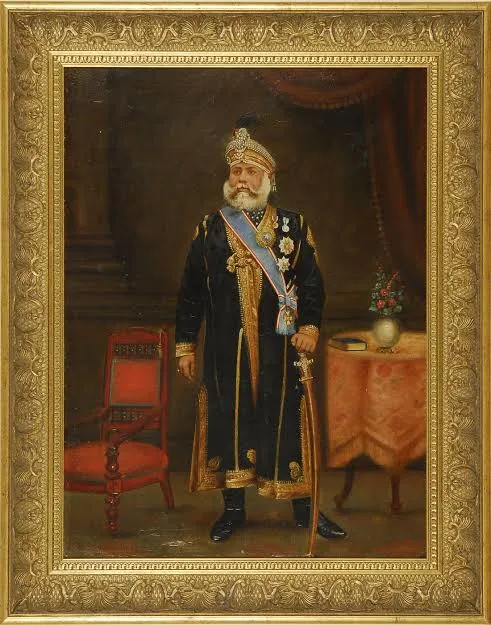Rising nationalism in Sindh due to Pakistan's discriminatory politics is forcing Sindhis to revisit their pre-Islamic history. Challenging the national symbols and leaders imposed upon them by Pakistan, many Sindhis are resurrecting Maharaja Dahir Sen–the last Hindu ruler of Sindh.
The Jeay Sindh Freedom Movement (JSFM), which advocates for Sindh as a separate nation, is organising a series of events in Pakistan and the US in memory of Maharaja Dahir on his death anniversary that falls on Saturday July 02, 2022. JSFM founder and chief organizer Zafar Sahito told India Narrative that events will be held in Houston and Chicago, USA, besides Karachi, Pakistan on the weekend.
For many people in Sindh Raja Dahir is still a hero who sacrificed his life for his land. Secular Sindh Forum paid tribute to Shaheed Raja Dahir on the day of martyrdom.
P.S: Those who have not read the history from an unbiased lens should not comment here. pic.twitter.com/WVEynAgdsK
— Kapil Dev کپل دیو (@KDSindhi) July 2, 2021
Raja Dahir, who died in 712 AD, was the last Hindu ruler of Sindh. It is believed that he was defeated by Muhammad bin Qasim, an Arab general of the Umayyad Caliphate. Raja Dahir's kingdom spanned today's Sindh, Balochistan, parts of Iran, parts of Afghanistan and Punjab.
Over the last two years, Sindhis have been demanding the installation of a statue of Raja Dahir, putting them in direct conflict with Islamabad which has tried to portray Muhammad bin Qasim as a founder of Pakistan. While Pakistan has been trying to establish that the idea of Pakistan preceeds 1947, the Partition of India, and goes back to year 712, the nationalists are hoisting Raja Dahir who pre-dates Muhammad bin Qasim.
Sahito says: "Pakistan and radical Islamist groups are against the original history of Sindh and they hate Raja Dahir because he isbelieved to be a Brahmin king. Taking the name of Raja Dahir is considered to be a blasphemy in the country, because the Pakistani military and Islamist radicals fear real history. They think that if people will make the connection with their roots, then Pakistan’s Islamic identity will be compromised".
Raja Dahir was defeated and killed by Arab conquerors in a 18-day-long battle. The defeat also led to the spread of Islam in the Indian sub-continent.
Much like their Baloch neighbours, who are fighting for an independent nation, Sindhis too have been demanding separation from Pakistan. Besides allegations of political neglect by the dominating Punjabi Muslims, the Sindhis also report thousands of 'missing persons', extra-judicial killings of their leaders as well as water deprivation by the upper riparian Punjab which is causing strife among farmers.
Another grouse among the Sindh population is the dilution of their identity and demographics by Pakistan's policy of settling in Afghans, Pushtuns and people from other parts of Pakistan. On its part Pakistan too cracks the whip on Sindhi students repeatedly by filing sedition cases against them.
The advent of the China Pakistan Economic Corridor (CPEC) too has pushed the Sindhis further away, who fear that the federal government plans to give away large tracts of land to China for development. Sahito says: "The federal government has earmarked a 97-mile-long coastal belt to be given to China so that our feudal lords and military men can live lavish lives. We fear that if the Pakistani-Punjabis do not return the debt to China, Sindh will be sold to the Communist Party of China".
Raja Dahir as a symbol from history has brought the common folk and the Sindhi activists on a joint platform against the federal government. For years now, the Sindhi nationalists have organised the Remembrance Day for Maharaja Dahir to ensure that people also link up to the ancient Indus Valley civilization in a direct challenge to the Islamic Republic of Pakistan.
Read More:
Interview: Sindh will become a Chinese colony if Pak fails to pay back its debts: Zafar Sahito
Balochistan and Sindh: Half of Pakistan suffers acute water shortage due to discrimination



















